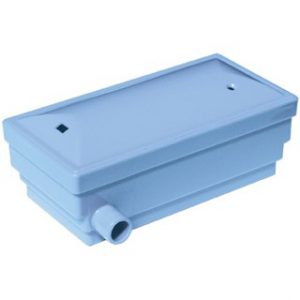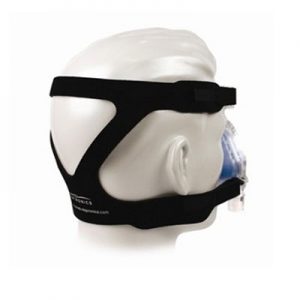Having trouble breathing?

Trouble Breathing
It’s tough to make better of life except you’re able to breathe correctly. If you are faced with difficulty in breathing, it is a good idea to put your finger on the problem as soon as you can.
Understanding whether you are experiencing something as innocuous as the common cold or as hazardous as heart failure can be challenging. We will help you expose the facts about your situation with secure advice from a variety of internationally recognized sources. Where should you begin?
Start with analyzing the trigger.
If you feel that you are not getting sufficient air, don’t ignore it. If it begins right after exhausting physical activity, stress, exposure to dust, and a stuffed nose, it is likely to be a mild situation that still requires medical attention. However, if you notice severe chest discomfort and shortness of breath in sudden spells, it might be a pre-indication to a serious disorder. Mostly, a serious breathing condition is a result of some kind of lung, airway, or heart inconsistency.
Asthma: Symptoms include gasping, coughing, and tightness of the chest. This is caused by inflammation of the airways.
Bronchitis: Associated with constant cough, fever, sore throat, wheezing, and chest tightening, bronchitis, this condition is caused by irritability to the bronchial tubes.
Pneumonia: Reveal by chest pain, shortness of breath, muscle ache, and coughing, pneumonia is the issue of a kind of bacterial infection of the lungs.
Sleep Apnea: Generally indicated by loud snoring, choking during sleep, lack of concentration, and extreme laziness during daytime. It affects blockage of the airway during sleep causing breathing pauses.
Chronic Obstructive Pulmonary Disease (COPD):
The signal includes chronic cough, fatigue, wheezing, headaches, and chest tightness. COPD is a combo of progressive lung diseases which make breathing ambitious over time.
Pulmonary Embolism: Another serious problem with signs such as excessive sweating, unusual heart rate, chest pain, wheezing, and in some cases, swelling of a body part such as a leg. Occurs when a blood clot travels from a body part to a lung avenue resulting in unobtrusive oxygen supply among other problems.
Heart Diseases: Conditions related to the heart mostly caused by artery damage, anatomical defects, and heart rate disorders may also cause harsh breathing problems.
Epiglottitis: Typical signals involve the mouth salivate, difficulty in absorption, intense throat soreness, particular breathing pattern, and sounds. In a medical emergency in most cases, epiglottitis affects swelling of the epiglottis, a tissue that binds the windpipe.
What to do in case you’re facing these indications?
Notice the above syndrome does not necessarily mean that you’re suffering from one of the listed disorders but it’s imperative to seek expert medical mediation without delay. Your doctor will audit you, study your symptoms and ask a few questions before charting a determined course of action. And if treated crucial by your physician, some tests such as chest X-ray, CT scan, pulse oximetry, pulmonary function testing, and blood tests will help in diagnosing and treating your case more accurately.
Treatment Options
Altering Lifestyle: Not all respiratory problems require medication. Your breathing trouble might be a result of an allergic reaction which might get sober just by avoiding exposure to trouble, wearing a mask, and decrease dust build-up around yourself. Meditation and exercise might also result to be quite beneficial in case of stress and anxiety-induced respiratory problems
Reducing Weight: Some breathing circumstances are tightly linked with being overweight. With a realistic weight loss plan under the guidance of your physician, it is possible to treat a few respiratory disorders. In particular, weight control can prove to be highly useful for sleep apnea patients
Further Diagnostic Testing:
Ask your doctor for a sleep test. These tests collect data on breathing diagrams and concurrent critical signs through overnight sleep lab visits or homestays. The results may suggest you are an applicant for a particular device such as an APA, CPAP, or in intense cases such as chronic obstructive pulmonary disease (COPD), long term oxygen therapies
Medication:
There are different highly advanced medications advanced to treat or manage all kinds of respiratory difficulties. If it’s a mild condition create by some kind of allergy, your doctor is likely to define decongestants, inhale steroids, and antihistamines which will help take down the inflammation of the airways. And if your condition is a serious problem combine with your lungs or heart, then the doctors will order medications or respiratory support equipment dependent on your unique needs. In the case of chronic problems or diseases which have no cure, the healthcare provider’s primary focus is to keep the impact to a minimum and ensuring a decent quality of life.
Surgery:
For severe conditions, surgery may be the right decision to relieve you of symptoms from blockages, and adjust the size of the airway may be compulsory in order to clear the blockage
How can you minimize the risk of developing a breathing problem?
Damage done to the complex mechanism of the lungs is quite often irreversible. It is important to know how you can defend them and reduce the risk of expanding a breathing problem. Here are things you can do:
- Getting medical care as soon as you detect warning signs
- Don’t do smoking
- Maintain your weight under control
- Avoiding risk to irritants and dust
- Consolidate lung-related exercise into your workout regiment
In addition, it is desirable to try finding out from your physician if your mild breathing distress requires the use of any respiratory support device as avoidance. Products such as CPAP, BiPAP, or oxygen concentrators not only play a vital role in managing and treating respiratory disease, but they can also help in preventing one if exposed at an early stage.



